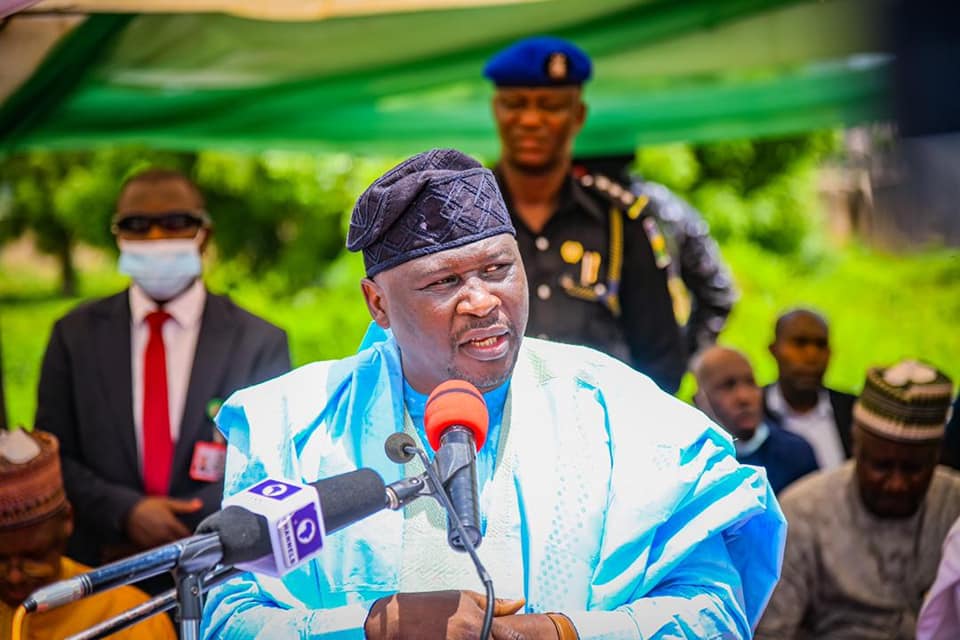Governor Ahmadu Umaru Fintiri of Adamawa State has been widely recognised for his transformative leadership and significant contributions to the state’s development. Over the past five years, his administration has embarked on an ambitious agenda aimed at infrastructural development and urban renewal, significantly enhancing the quality of life for the residents of the state capital and other major towns in Adamawa State.
As part of his urban renewal and the revitalisation of hitherto decayed infrastructure, the governor embarked on massive road construction and upgrading of existing road network within the state capital. The first of this road infrastructure to be provided by the Fintiri administration is the Jimeta – Yola Grade Interchange that was commissioned by former President Olusegun Obasanjo on May 29, 2024. This interchange that is made up of an underpass and a flyover, with one rotary that has eased the flow of traffic on the Yola Road and has beautified the area. Another flyover is at completion stage at the ever-busy Mubi Road roundabout.
The governor has prioritised the construction and rehabilitation of urban roads to improve connectivity and ease of transportation within the state capital and other major towns. Notable projects include the construction of a superhighway that bypasses Jimeta from Welcome to Yola on the Yola–Numan highway and create a new vast corridor that will open the veld that stretches between that section of the state capital and the old Yola town for residential and commercial development.
This is meant to alleviate traffic congestion and reduce travel times. Infrastructure projects have been undertaken to address flood control, including the construction of drainage systems and the reinforcement of riverbanks.
- Reflections on the new National Anthem as patriotism and hope renewed
- Tinubu’s economic policies for the future
To foster rural development, the government has also focused on constructing and rehabilitating rural roads. These efforts have improved access to remote areas, facilitating the movement of goods and people, and boosting local economies. One of these rural roads, the Pella–Maiha Road that has been under construction since 2007 was completed and commissioned a couple of days back.
The Fintiri administration did not concentrate on the provision of roads only but made a good showing in other critical sectors like the health sector, the education sector, housing and the provision of potable water to urban and rural dwellers. Significant investments have been made in upgrading healthcare facilities across the state. The renovation and expansion of hospitals and primary healthcare centres have improved access to quality healthcare services, reducing mortality rates and enhancing overall public health. New health centres have been established in underserved areas, ensuring that even the most remote communities have access to medical care.
The administration has undertaken the renovation and modernisation of numerous schools, providing a conducive learning environment for students. This includes the provision of modern classrooms, libraries, and science laboratories. New schools have been built in areas with growing populations, ensuring that education is accessible to all children in the state. The construction of 21 mega schools in each of the 21 local councils have reached advance stage and the schools are expected to take their first intake at the commencement of the next academic session.
With a housing deficit of about 23 million nationwide, the Adamawa State government has initiated a 1000-unit affordable housing project to address the housing deficit in the state. This is the first phase that is meant to provide decent and affordable homes for low- and middle-income families, improving living conditions and reducing homelessness.
In the area of water supply, efforts have been made to improve water supply across the state. New boreholes complete with storage tanks have been provided in most rural areas, while the Jimeta and Yola water treatment plants are getting the desired attention. This is expected to provide clean and safe drinking water for urban and rural communities.
Economic development is another sector that is very dear to the heart of his excellency.
To boost local economies, several markets have been upgraded with modern facilities, including stalls, storage facilities and proper sanitation. Twelve cattle markets were the first to be given this facelift. This has improved the business environment for traders and enhanced the shopping experience for consumers.
The continuous infrastructural development and urban renewal efforts under Governor Fintiri’s leadership have had a profound impact on the residents of Adamawa State. Improved infrastructure has enhanced connectivity, boosted economic activities, and provided better access to essential services such as healthcare and education. These developments have not only improved the standard of living but have also fostered a sense of pride and optimism among the people.
Governor Fintiri’s commitment to transforming Adamawa State through sustainable development and inclusive growth has solidified his reputation as a change agent. His administration’s achievements over the past five years serve as a testament to the positive impact of visionary leadership and dedicated public service.
Love him or hate him, one thing you cannot take away from him is his passion for Adamawa State and its people.
Toungo can be reached via [email protected]

 Join Daily Trust WhatsApp Community For Quick Access To News and Happenings Around You.
Join Daily Trust WhatsApp Community For Quick Access To News and Happenings Around You.



